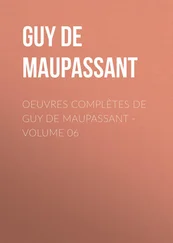Today they are watching Olympic officials in white suits and white fedoras sort and organize runners for the marathon. Alec has never heard of a marathon and Daniel is passing on to him whatever he has learned from his reading of Sports Illustrated . He speaks reverently of Emil Zátopek, most famous previous winner of the 26 mile, 385 yard race. At first his grandfather refuses to believe it possible, that human beings could, or would, run such a distance, but Daniel keeps assuring him that it is true, that the spare, sinewy men with hollowed cheeks who are nervously shuffling their feet and prancing on the spot are prepared to race each other over all those punishing miles.
“This I’ve got to see,” says Alec in disbelief. “Why, that’s further than Hyacinth,” he remarks, naming a town down the line. “And why 26 miles and 385 yards? Why those extra yards? Is it because somebody once survived the 26 miles and they needed those 385 yards to finish him off? If you wanted to race horses that far the SPCA would have you up on cruelty to animal charges.”
The announcer seems to view the race in a similar light. His preamble is full of words like pain, courage, suffering, endurance. He speaks of a marathoner arriving at that stage in a race when the body’s resources are utterly depleted and the runner’s muscles, sapped, function on will alone. As he talks, the cameras sweep over the drawn, anxious faces of the race favourites, pausing briefly for a moment to dwell on an oddity, a slight, grave black man who, it is announced, has inexplicably chosen to run the marathon in bare feet. The announcer states his opinion that no matter how unaccustomed to footwear this primitive African might be – an Ethiopian in Emperor Haile Selassie’s bodyguard named Abebe Bikila – he is making a serious miscalculation choosing to run barefoot. The cobble-stoned streets of Rome that make up part of the route will be considerably less forgiving to his feet than the highland meadows around Addis Ababa where he is accustomed to train.
Yet at the six and a half mile mark of the race the Ethiopian can be found in the leading group of runners. Monkman can’t believe their pace and predicts they’ll never maintain it. “They’ll never hold it,” he says, “never.” Six miles further on Rhadi the Moroccan and the barefoot Ethiopian surge away from the pack, Rhadi in front and Bikila poised at his shoulder, running relentlessly and mechanically like a wind-up toy, bringing Daniel and his grandfather to the edge of their seats, leaning forward toward the screen. The elapsed time is announced as sixty-two minutes, thirty-nine seconds and his grandfather excitedly urges Daniel to find a pencil and paper and compute exactly how fast the two leaders are running. Daniel has never seen him this excited, crouched in his chair, hands rubbing his kneecaps, eyes welded to the television and its fleeting figures, the old man is utterly enthralled by the drama. Before Daniel completes his calculation the television reports that Rhadi and Bikila are covering one mile approximately every five minutes.
“That can’t be right. Is that right?” his grandfather demands without shifting his eyes from the TV.
Daniel gives a flick of the pencil on the sheet of paper and confirms it. “Yes,” he says, “that’s about right.”
“How do they keep going?” asks the old man softly.
At the twenty-two-mile mark Bikila spurts past the Moroccan bringing Alec out of his chair and onto his feet. Alec jabs a forefinger at the figure on the television, pumps his shoulder, “Run you black bastard!” he exults. “Run!” Stabbing his finger at the runner on the screen as if it were a prod. Daniel glances up at his grandfather and feels a slight alarm. Alec, swaying, has to reach out and steady himself with the chair back. The old man’s eyes are burning.
Now the Ethiopian is in first place and Rhadi pursuing. The camera fixes on the rigid, determined mask of Bikila’s face, sweeps down for a shot of naked feet skimming above and whispering on the pavement. Twilight lowers on the city and the little man forges on through the waning light, seemingly blind to the cheering crowds thickening along the race route. He looks to neither side, refuses blueberry juice and glucose offered from a refreshment station, simply runs on. The old man knows this is proper, this is how it must be. Bare feet and unslaked thirst.
Alec wishes he could watch the black man run forever. But Abebe crosses the finish line and the spell is broken. Then it is over for both of them. Bikila waves away the blanket race officials press on him. This too seems correct to Alec. As the tension drains from his body Bikila begins to laugh, then suddenly his laughter becomes tears and he weeps like a broken man. Monkman feels his own eyes filling. The winning time, two hours, fifteen minutes, sixteen and two-tenths seconds, is announced. The old man asks Daniel to write it down for him, carefully folds the paper the boy gives him, and slips it into his wallet, declaring to Daniel that he ought to remember this moment, they’ve just seen the toughest man in all the Olympics.
Daniel, desiring to get his own back for the Russians, says that is ridiculous. Come on, tougher than the boxers?
But the old man doesn’t trouble to answer his challenge. He seems to have slipped off in one of his trances again, wallet lying open in his lap.

In September the Games ended, leaving behind a legacy. Daniel got the idea he would turn himself into a distance runner. He had never been much good at sports but distance running appeared to him mostly a matter of training and will. All that was necessary was to harden his body until it was capable of stubbornly doing its duty. Maybe he couldn’t run fast but he might learn to run hard and long, harder and longer than the talented ones who hit and caught balls effortlessly. Best of all, he could learn to do this in secret, on his own. He took a grim, sweet delight pushing his body until it hurt and thinking of spring and track season and the surprise he would have in store for them all then. It was like a story in a boys’ book, he imagined the end of the race and Biff or Todd, somebody with that kind of name, somebody who hadn’t thought him much at all, coming up to congratulate him, saying “I didn’t think you had it in you. But say, Danny, you’re all right!”
Daniel had no real idea how to train. He simply laid out a course and, each time he ran it, tried to run it faster than the last time. Afraid of being seen and laughed at, he waited until dusk to train and took an added precaution. He ran in blue jeans rather than shorts, so if anyone noticed him he would not be a runner – only a boy happening to run.
Alec became his timer. Each night when twilight fell his grandfather packed his captain’s chair out onto the front lawn and settled himself into it with his wristwatch nestled in his palm. Daniel had asked him if it was necessary to make himself so conspicuous but the old man said, Yes, it was. If Daniel wanted an accurate timing the timer had to be exactly flush with the finish line which was the north corner of the house. He needn’t think he was going to wait on him standing, not with his legs. Consider his age.
They estimated the route to be approximately three miles. The highway which led west out of Connaught made the first side of the loop and if Daniel encountered a car approaching there, he slowed to a walk as soon as the headlights picked him up. When the car passed, he resumed running. At first he hadn’t bothered to slacken his pace when he met a vehicle but this had caused people to stop their cars and ask, Did he need assistance, had there been an accident? Answering such inquiries had been embarrassing so now he went along at a jerky, impatient walk until the coast was clear again.
Читать дальше













